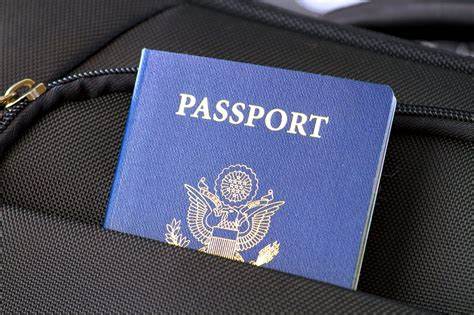
Our Correspondent | Africa Guardian
Ghana has taken a bold and historic step in promoting Pan-African unity by announcing that all African passport holders will no longer require visas to enter the country. This transformative policy was unveiled by former President Nana Akufo-Ado during his final State of the Nation Address and marks a significant milestone in fostering intra-African travel, economic integration, and solidarity.
The move is in line with the objectives of the African Continental Free Trade Area (AfCFTA), which seeks to enhance the free movement of people, goods, and services across the continent. It also embodies the Pan-African ideals of Ghana’s founding father, Kwame Nkrumah, who led the Gold Coast to independence in 1957. Nkrumah’s vision for a united Africa remains central to Ghana’s commitment to dismantling colonial legacies and promoting continental unity.
With this initiative, Ghana joins a select group of African nations, including The Gambia, Rwanda, Seychelles, and Benin, that offer visa-free entry for all African passport holders. This move is expected to strengthen ties across the continent, enabling easier travel, increased tourism, improved trade relations, and enhanced cultural exchange.
This new policy also aligns with Ghana’s dedication to advancing regional integration and economic cooperation under the African Union (AU) framework and the AfCFTA agenda. By facilitating movement across borders, Ghana is contributing to a more interconnected Africa, where citizens can explore opportunities for collaboration in business, education, and innovation.
The significance of this step is far-reaching. Africa faces numerous common challenges, such as poverty, inequality, corruption, and poor infrastructure, but it also has immense potential for growth. The continent is home to innovative solutions to local problems, from sustainable energy projects to advances in education and healthcare. A more open Africa can leverage its vast human resources, fostering an environment where countries work together to address shared challenges.
While opening borders may present logistical challenges for some nations, the globalized world demands greater cooperation to ensure economic survival and prosperity. The advancement of AfCFTA is vital to diversifying economies, creating jobs, boosting trade, and reducing poverty. It offers a pathway to economic resilience and social security improvements across the continent.
Africa’s true potential lies not only in its abundant natural resources but also in its people. With a population of over 1.5 billion, set to grow to 2.5 billion by 2050, Africa’s market and workforce present incredible opportunities for internal trade and development. Strengthening intra-continental relations will allow Africa to reduce dependence on the exploitative systems of the Global North, promoting self-sufficiency and economic empowerment.
Despite the continent’s rich diversity, with thousands of ethnic groups and over 3,000 languages, Pan-Africanism emphasizes unity. A united Africa can chart a stronger political, social, and economic future. Ghana’s move to eliminate visa requirements is a step in this direction, fostering an environment where citizens can collaborate, innovate, and prosper together.
Visa-free policies should not be seen as a threat to security but as an opportunity for African nations to share knowledge, improve skills, and advance their collective interests. When more African countries embrace such policies, the continent will be better positioned to drive its own development and address the needs of its people in a rapidly evolving world.
The ultimate goal is to create a more integrated Africa, where a common language, currency, and stronger economies enable countries to support each other. Just as the European Union has successfully integrated, Africa has the potential to become economically indestructible, socially cohesive, and politically resilient.
Ghana’s groundbreaking move in 2025 is a testament to the nation’s commitment to its future and Pan-African ideals. As Kwame Nkrumah once said, “The forces that unite us are intrinsic and greater than the superimposed influences that keep us apart. We must unite now or perish.” Ghana has set an inspiring example, showing that true unity is not just a dream but a tangible, achievable reality for Africa.
___
